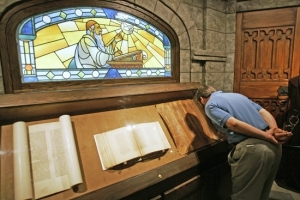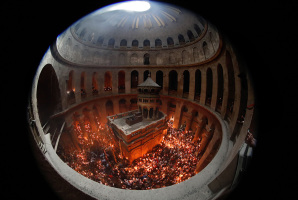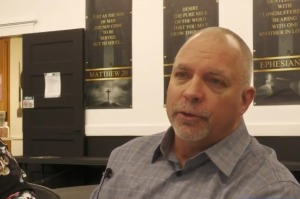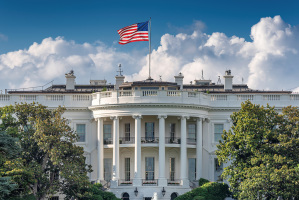Evangelicals Form New Group to Bring Churches Back to the Bible
WASHINGTON – A group of pastors launched a new evangelical network Tuesday in the hopes of reaching American churches that have fallen into liberal ideology and encouraging a full return back to conservative values and principles.
In order to reclaim misled churches, Bishop Harry Jackson, Jr. and a band of six other clergy members have created the International Communion of Evangelical Churches, aimed at forming "an army of churches" that would set the moral high ground for American churches and the nation.
ICEC will recruit churches and Christian groups, both at home and abroad, believed to be evangelical in their beliefs and observance of Scripture to ignite a flame in the Christian community. So far, the network has 1,000 members, Jackson said. Another 1,000 churches and organizations have also expressed their interest in the joining network.
In the coming months, ICEC members plan to selectively invite more churches and groups to join the network. Then it will throw itself into its main mission: evangelizing 5 million new believers and erecting 5,000 churches within the next 10 years.
"I believe that we are going to see in the days ahead multiplied millions of people impacted by this organization and by a new spiritual awakening that is beginning to occur in America," said Jackson, chairman of church group the High Impact Leadership Coalition.
Founding members of the ICEC believe American churches have strayed from its foundation as a moral conscience to the nation. These churches have been led astray by so-called spiritual leaders with ideology that is not supported by Scripture.
During the press conference Tuesday, ICEC founders responded to recent remarks made by Nation of Islam leader Minister Louis Farrakhan. Farrakhan spoke at American Clergy Leadership Conference's prayer breakfast last month denouncing Christian ministers for being too materialistic and being soft on issues such as homosexuality.
He also spoke of the Nation of Islam's recent collaboration with the Church of Scientology and called for faiths to unite in preaching the gospel. "God is not the author of confusion," Farrakhan told Christian clergy members. "He is the author of peace. He does not have many religions, He only has one."
While parts of his message aligned with biblical beliefs, Jackson stressed that Farrakhan is not a Christian and is ultimately leading Christian churches under his influence to accept the gospel of inclusion – meaning people of all faiths can enter the kingdom of heaven so long as they acknowledge the existence of God and/or Jesus.
Jackson said that many churches, especially African-American churches, are becoming susceptible to this message because of leaders such as Farrakhan, an African-American figure strongly respected in the black community, and Bishop Carlton Pierson.
Pierson, a minister once close to famed Potter's House pastor T.D. Jakes, shocked many when he revealed his disbelief in hell and began to align himself and his church with the gospel of inclusion.
Jackson, also an African-American, repudiates that gospel saying, "My bible teaches me that there is only way to God."
Jackson and the other founders said ICEC is going to take a strong stand for biblical truth.
"This communion is going to be one that is going to keep ourselves accountable," said founding member Bishop J. Alan Neal. "We're going to stand on biblical principles."
The network is calling on churches to repent of its embrace of contradictory doctrine. It is also establishing programs to develop and mentor disciples and leaders who can confront those who misrepresent the gospel, starting with urban communities and spreading throughout the country.
"I believe that as the word of God teaches us, Jesus said we are light of the world and the salt of the earth," said founding member Bishop Joseph Mattera. "We are also going to be a beacon of light, [by] doing our part [to] bring to bear to the secular world and the church world the aspect of the kingdom of God dealing with politics, economics, philosophy, history, theology, education and all realms of life under the Judeo-Christian worldview."





























